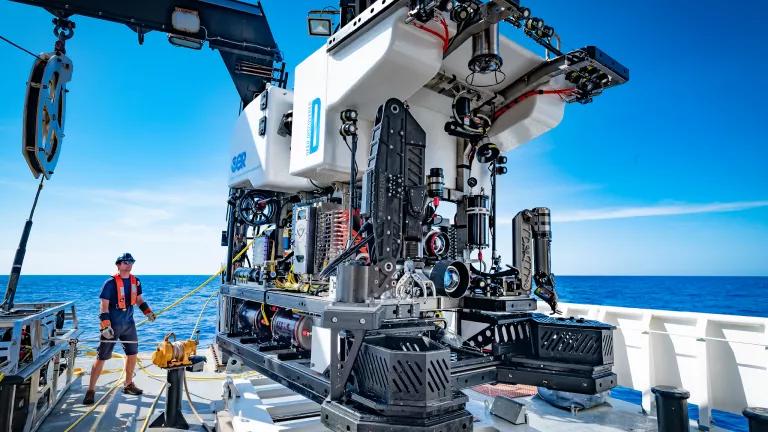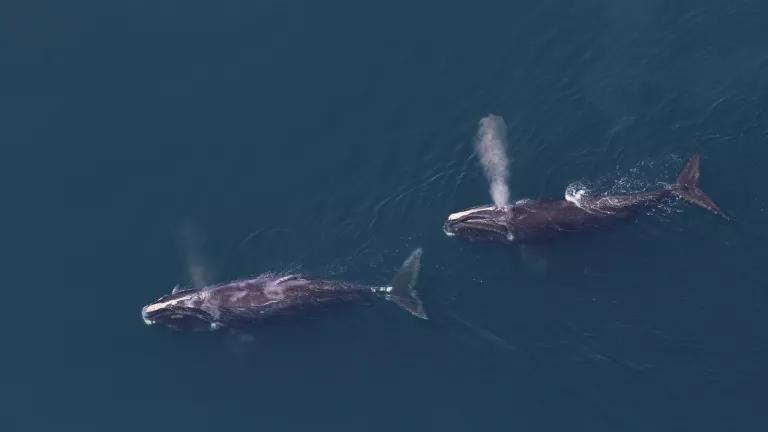
Entanglement in the vertical buoy lines used by lobster, crab, and other trap fisheries are the leading cause of North Atlantic right whale deaths and injuries
Georgia Department of Natural Resources. Image taken under NOAA Research Permit #15488
The Monterey Bay Aquarium Seafood Watch program recommended today that consumers should avoid purchasing American lobster caught in the U.S. and Canada, snow crab caught off Canada’s Atlantic coast, and several other fisheries, because of impacts to critically endangered North Atlantic right whales.
NRDC strongly supports this science-based and precautionary recommendation, which indicates that Seafood Watch remains a trusted resource on seafood sustainability.
Launched in 1999, Seafood Watch informs – directly or indirectly – the purchasing decisions of more than 50 NGOs worldwide and more than 25,000 business locations. The program maintains formal partnerships with major seafood buyers, including Bon Appetit, Compass Group, Disney, and Whole Foods.

This female right whale named "Starboard" died off the Canadian coast this summer after dragging crab traps for days.
North Atlantic right whales are rapidly declining, in large part because of entanglements in vertical buoy lines associated with fixed-bottom fishing gear, such as the traps and pots used to catch lobster and crab. Even non-fatal entanglements negatively impact overall health and body condition and impair the ability to successfully produce or raise a calf. These “sublethal” impacts make it even more difficult for the species to ever recover.
Seafood Watch’s decision follows a similar recommendation to avoid American lobster issued by WWF-Hong Kong, following the listing of North Atlantic right whales as critically endangered by the International Union for Conservation of Nature (IUCN). Bycatch and entanglement in lobster fishing gear were identified by IUCN as key threats to the species.
In June, NRDC, Animal Welfare Institute, and Defenders of Wildlife formally objected to a determination that the Gulf of Maine lobster fishery—which represents a portion of the American lobster fishery—should be recertified to the Marine Stewardship Council (MSC) sustainability standard on the grounds that the fishery threatens North Atlantic right whales.

Ropeless fishing systems protect whales from entanglements and enable fisheries to operate sustainably.
Jessica Russo/NRDC
American lobster, Canadian snow crab, and other fisheries posing entanglement risk to large whales and other marine species, should only be certified as a sustainable seafood choice when testing and subsequent commercial deployment of ropeless fishing systems has been significantly advanced. This innovative technology has the potential to eliminate vertical lines from the water and therefore risk of entanglement, allowing fisheries and marine species vulnerable to entanglement to coexist.
We hope the decision by Seafood Watch will encourage fisheries to more actively engage in the advancement of available solutions, such as ropeless fishing systems, that promote coexistence of fishing and endangered species.



